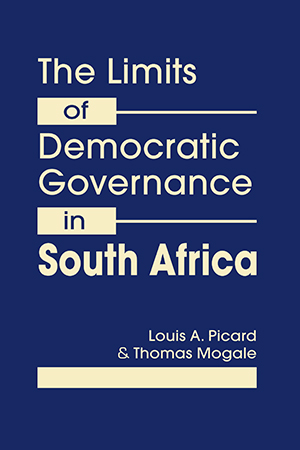Louis A. Picard and Thomas Mogale
In the transition from apartheid rule to democratic governance in South Africa, what has been the impact on South African society at its base—on the people in the country's cities, towns, villages, and farms? Louis Picard and Thomas Mogale offer answers to this fundamental question, tracing historical trends and measuring change (or the lack of it) in the dynamic between the promise of local participatory governance and the realities of a hierarchical state.
Louis A. Picard is professor of public and international affairs and African studies and director of the Ford Institute for Human Security at the University of Pittsburgh. His numerous publications include
The State of the State: Institutional Transformation and Political Change in South Africa.
Thomas Mogale is director of the Graduate School of Public and Development Management at the University of the Witwatersrand. He is coeditor of
Restructuring the State and Intergovernmental Relations in South Africa.
Also of interest:
Decentralization in Africa: The Paradox of State Strength, edited by J. Tyler Dickovick and James S. Wunsch
No rights in southern Africa."Excellent.... This book gets well under the skin of contemporary South Africa. Highly recommended."—Choice
"A magisterial analysis of the circumstances and trends in South African local governance that have led to the current challenges and dilemmas behind the … ongoing institutional power struggles."—Patrick FitzGerald, University of the Witwatersrand
"Comprehensive, pioneering, and authoritative. Picard and Mogale's book will be a standard reference for scholars and policymakers working in this area."—John Harbeson, Johns Hopkins University School of Advanced International Studies
"A compelling narrative that takes the reader through the evolution of local governance in South Africa, from its historical beginnings through the current time, to shed considerable light on the current sharing of power and resources across government levels.... an important contribution."—Jamie Boex, The Urban Institute






